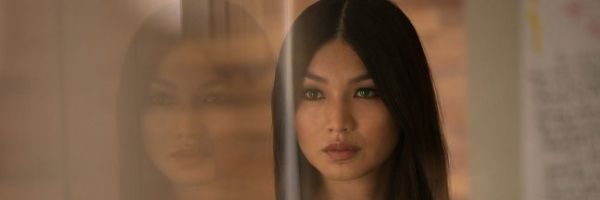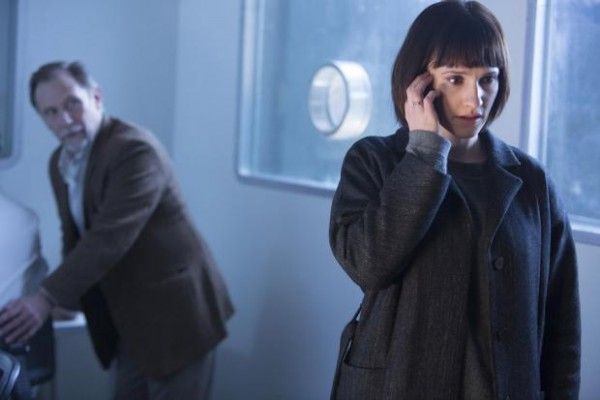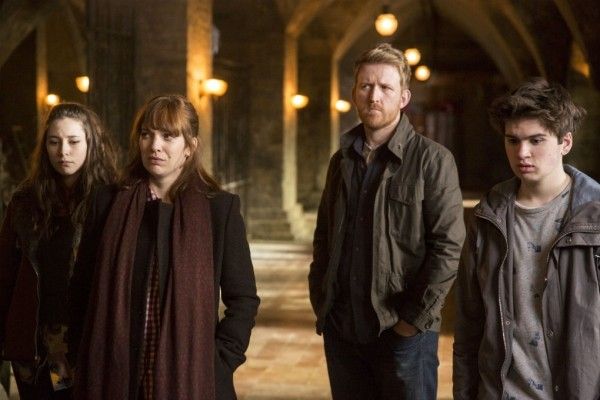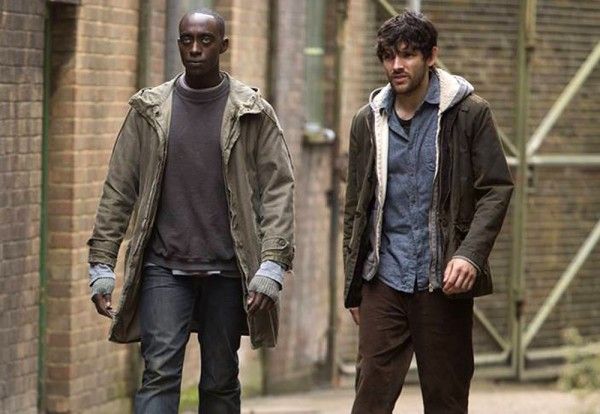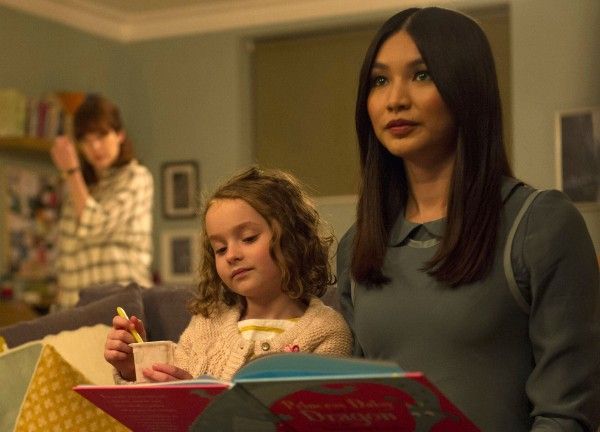It’s not easy to explore the very nature of humanity, let alone in eight episodes of television, but AMC’s Humans has done a great job of posing difficult questions and letting its characters struggle through them. The show is at its very best when it sets its sci-fi storylines aside though, and just deals with people (and by people I also mean the synths). Two of the most powerful scenes in the finale dealt with free will: in one, Fred (Sope Dirisu) is scared and betrayed when he realizes that Hobb (Danny Webb) plans to give synths consciousness while also enslaving them; in the other, Karen (Ruth Bradley) — desperate for inclusion but scarred from a life of rejection — seeks to destroy her fellow conscious synths, but is turned back to their side once Mia tells her what makes her unique is her ability to choose her path.
Free will is a subject explored throughout the first season, particularly regarding synths and sexual consent, but in Episode 8 we got a glimpse of what happens not only when that ability is taken away, but when it’s taken away while still allowing consciousness. Leo’s (Colin Morgan) desire to bestow other synths with a gift of consciousness also means allowing free will. By not allowing that (as Hobb intends), it’s tantamount to slavery. But then there is also the fact that not all consciousnesses are uniform — the variety in personality among Mia (Gemma Chan), Niska (Emily Berrington), Karen, Fred, and Max (Ivanno Jeremiah) illustrates that beautifully, and occasionally frightfully.
The group is bound together by the idea of family, but they don’t necessarily share a moral code. Niska, in particular, has a “darkness” in her (as Leo says) that makes her prone to violence and almost sociopathic behavior. At the end of Episode 8, she breaks from her family to “live a life of her own,” where later we see she’s posing as a human, on a train to who knows where, after lifting Mattie’s (Lucy Carless) flash drive with the key to synth consciousness on it. If you recall, she is the one who initially hands the drive to Laura (Katherine Parkinson) under the guise of trust — an atypical move for Niska, but one that felt like a moment, perhaps, of emotional catharsis. Later, when Mattie can’t find her extra drive, Laura’s face falls. She knows she was given the wrong one, and Niska is now off on her own and ready to bestow consciousness to synths at will.
On the other side of things, when justifying his actions to the government, Hobb postulates that humans not only want to be served, but to be loved, creating synths who are like advanced pets. By giving them the ability to feel pain and loss (but also joy and love), the onus then goes to the synth’s owners to create a positive and caring environment for them. But isn’t that exactly the problem with humans in the first place? There’s no way to guarantee that, and the synths — trapped now in mind and body — now may not just suffer hypothetically, but assuredly. The cycle of slavery rears its ugly head on one side, while newly awakened synths may arise who seek revenge or desires for domination like Niska could populate the other. And regarding all of that, Humans has only just begun to scratch the surface.
But these are big, sweeping ideas, and it’s part of the reasons why Episode 8 was so busy. And while there were some touching moments with each family group (Leo’s and the Hawkinses), the series left viewers with plenty of questions for both sets of individuals. One of the only arcs that felt full-formed from start to finish was Laura’s, who went from a synth skeptic to their greatest ally in a way that felt completely earned. But somewhat strangely, Mia became completely lost as a character once she gained her consciousness. Relegated simply to a “carer” and voice of reason, she took a backseat to her more active synth siblings, and didn’t have any room to grow or develop from that point on. Where will she go from here? What does Niska have planned? With the Hawkins have a role to play in Season 2? Is Karen in the clear? Isn't someone going to arrest Neil Maskell Drummond at some point?
Further, time spent in Hobb’s lab, the police force, and quick glances at the march were settings that didn’t feel like they led anywhere. The synths were released from Hobb almost immediately without harm, and his “trump card” turned out to be worthless. The police were woefully (helpfully) incompetent, and the march didn’t seem to mean much except as a reminder that some people really hate synths (and the show would do well to flesh that storyline out more like they initially did with Drummond). Instead, Laura and Joe (Tom Goodman-Hill) talking about Tom (the first time Joe ever really seems like he’s in love with Laura), as well as the synths’ reaction to Max waking up (and even more hauntingly, them covering up Fred with a blanket to hide him), were great moments. Even Sophie (Pixie Davies), an oft-forgotten character, had a sweet moment with Mia when they parted ways. The family laughter at the end was also a wonderfully relaxed, human scene. (And no scene of the series so far was more moving than a few episodes ago, when William Hurt’s George sharing a few final moments with Will Tudor’s damaged, outdated, but still emotionally relevant Odi).
Humans’ great triumph has been that throughout most of its early episodes, it stayed incredibly grounded to an unremarkable world populated with remarkable beings. Though synth technology is so incredibly advanced, everything else in the Hawkins household and in the world at large seems just as it ever was — cars, phones, laptops are all familiar to 2015. Humans is a quiet sci-fi series, which not only makes it unique and appealing, but also true to the tone of its story. The synths have sort of quietly taken over — they meld in so well with society that suddenly people are afraid. What if they become self-aware? It’s a parable for our technology-driven time, but also a metaphor with tragic historical precedence. Humans has done an admirable, if imperfect job of combining these two aspects into a worthy tale of A.I., and what it means to be human, and the moral burden that comes with it (and the fact that your creation may turn against you). In the meantime, we may be attempting to stave off a robot revolution of our own making, but Humans’ second season cannot come quickly enough.

